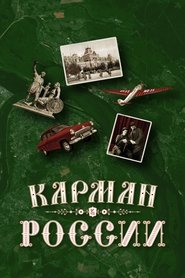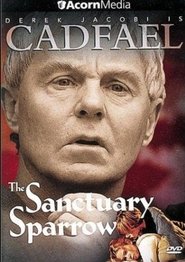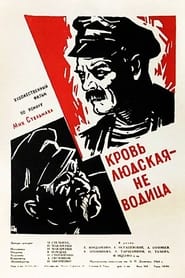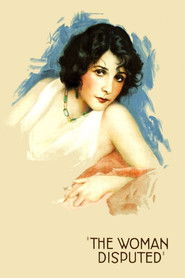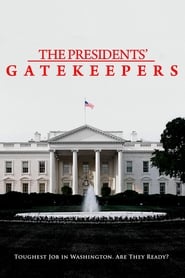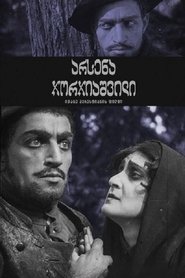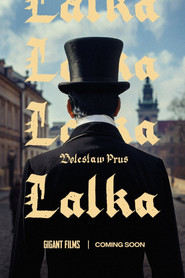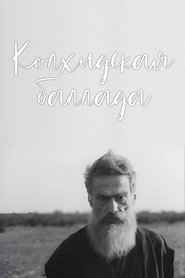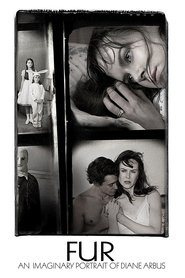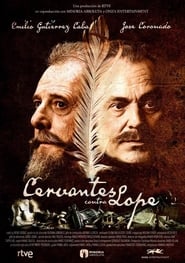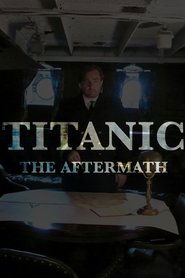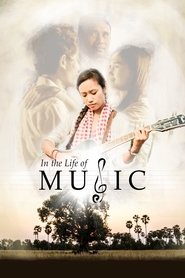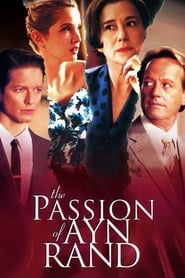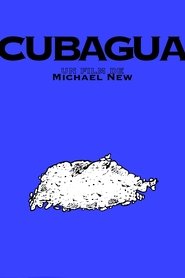Popular History Movies on Pantaflix - Page 340
-
Triptych o láske
1980
Triptych o láske
1980
star 1TV movie "Triptych of love" was created by short stories by famous Slovak writer Ladislava Nádaši - Jégeho. Historical themes in his works have an ambition to bring over to look attractive environment and time bygone era strong dramatic stories and exciting human destinies. Renaissance short stories from the collection "Italy" are a variety of views from different backgrounds, linking theme of many forms of love, its tones and semitones, from bitterly ridiculous after tragic. Screenwriter Ján Števček that dramatically processed three Jégeho stories. -
Boys Will Be Boys, Boys Will Be Men
2000
star 6In May of 1941, a group of young army volunteers is recruited in Chumpon south of Bangkok. Many high-school students apply to join the group. When the Japanese army lands at Chumpon in December, they bravely fight against the army. The film is based on the true story of how young army volunteers fought to defend their country from the Japanese Army. A misunderstanding between the two nations caused the unnecessary war to break out. -
Pocket of Russia
2021
Pocket of Russia
2021
star 10The film restores the panorama of the centuries. Journalistic narration with extensive use of artistic reconstructions, computer graphics, animation shows that the business tradition in the region was not interrupted. She manifests herself in different ways in different eras. A key trick used by different types of screen technologies is animation. Monuments to great people, buildings, industrial structures, landscapes of the Volga and Oka, film and photo chronicles are transformed, change in time and space, acquire a different dimension in order to somehow interact with the present, enter into a dialogue with descendants. -
The Sanctuary Sparrow
1994
Liliwin is a poor acrobat hired to entertain at an Aurifaber wedding. But when he is dismissed and the master of the house is found unconscious and robbed, Cadfael must find the real thief before the mob takes vengeance. -
Human Blood Is Thicker than Water
1960
The main character Danilo was one of Petlyura’s military commanders. But 1920 began, the struggle against the Soviet power ended, it was the time for the former irreconcilable fighters to return to their peaceful occupations. The only thing is that a former Petlyura’s fighter is not sure, that he is awaited in his own home or at least they understand for what he shed his blood. -
The Woman Disputed
1928
The Woman Disputed
1928
star 6.2An adventuress in love with an Austrian agrees to become the mistress of a Russian officer in exchange for the release of Austrian hostages. -
The Presidents' Gatekeepers
2013
star 10An analysis of what the role of the Chief of Staff is in his position at the service of the President of the United States of America and how it has been in the past: a in-depth look, through the corridors of White House, at the internal affairs of nine presidential administrations. -
Samurai Warriors: Legend of the Sanada
2014
star 6.2The story of the special revolves around the Sanada brothers in their youth. Nobuyuki and Yukimura swear to each other to protect the influential Sanada clan. However, thinking of how to best continue the Sanada clan, Yukimura makes a decision, and meets with Mitsunari Ishida and Naoe Kanetsugu at the location he arrived at. On the other hand, his elder brother Nobuyuki must worry about the selfish demands made by the Tokugawa clan. -
Arsena Georgiashvili (murder of General Griaznov)
1921
star 5.2Revolutionary uprising of Georgian laborers in 1905. -
The Doll
2026
The Doll
2026
Wealthy merchant Stanislaw Wokulski falls tragically in love with beautiful yet vain Izabela Lecka. His unfulfilled love leads to many foolish decisions sealing his fate. -
The Virgin Spring
1960
The Virgin Spring
1960
star 7.8Devout Christians Töre and Märeta send their only daughter, the virginal Karin, and their foster daughter, the unrepentant Ingeri, to deliver candles to a distant church. On their way through the woods, the girls encounter a group of savage goat herders who brutally rape and murder Karin as Ingeri remains hidden. When the killers unwittingly seek refuge in the farmhouse of Töre and Märeta, Töre plots a fitting revenge. -
The Colchian Ballad
1974
The Colchian Ballad
1974
The events of the film take place in a remote part of Georgia in the early 19th century. It tells the story of the Georgian peasantry's struggle against local feudal lords and their henchmen. -
Fur: An Imaginary Portrait of Diane Arbus
2006
star 6.1In 1958 New York Diane Arbus is a housewife and mother who works as an assistant to her husband, a photographer employed by her wealthy parents. Respectable though her life is, she cannot help but feel uncomfortable in her privileged world. One night, a new neighbor catches Diane's eye, and the enigmatic man inspires her to set forth on the path to discovering her own artistry. -
Angelo
2019
Angelo
2019
star 3.4In early 18th century an African slave boy is chosen by a European Comtesse to be baptized and educated. Reaching adulthood, Angelo achieves prominence and soon becomes the Viennese court mascot until he decides to secretly marry a white woman. -
Cervantes versus Lope
2016
star 5.2Mockumentary about the confrontation between Miguel de Cervantes and Lope de Vega around the apocryphal second part of the Quijote signed by Alonso Fernández de Avellaneda. It also tells the relations of other writers and influent persons on the Spanish Golden Age. -
Titanic: The Aftermath
2012
star 6Explores what happened after the Titanic sank: the lives the disaster affected and the changes it brought to sea travel. -
Firebrand
2024
Firebrand
2024
star 6.4Katherine Parr, the sixth wife of King Henry VIII, is named regent while the tyrant battles abroad. When the king returns, increasingly ill and paranoid, Katherine finds herself fighting for her own survival. -
In the Life of Music
2019
In the Life of Music
2019
star 9In the Life of Music follows the journey of Hope, a young American girl visiting her relatives in Cambodia for the first time. Determined to learn the history of her parents, Hope discovers the story of how one song, “Champa Battambang” played an integral part of three generations. Starting with how her parents met and fell in love in 1968, to their fight for survival during the war-torn Khmer Rouge years of the 1970’s and finally finishing in the modern day with Hope getting the answers she has longed for. -
The Passion of Ayn Rand
1999
star 4.9Author Ayn Rand becomes involved with a much younger and married man, to the dismay of those close to her. -
Cubagua
1987
Cubagua
1987
star 8Based on the novel by Venezuelan writer Enrique Bernardo Núñez, the film tells the story of engineer Leiziaga discovering his historical doubles in the context of the colonization of the island of Cubagua in Venezuela. In this way, two stories are intertwined: one that takes place in the 16th century and another in the 20th century. The first story focuses on the life of the Spanish settlers who arrived in Cubagua and the exploitation of the indigenous peoples for pearl extraction; the second story, set in the 1920s, tells of Leiziaga's archaeological expedition, financed by a multinational oil company, in which he visits the island to study the ruins of the Spanish settlement, which leads him to reflect on the passage of time and the destruction caused by human exploitation, and through a game of mirrors, to realize the relationships between the past, present and future.
 Netflix
Netflix
 Amazon Prime Video
Amazon Prime Video
 Apple iTunes
Apple iTunes
 Apple TV Plus
Apple TV Plus
 Disney Plus
Disney Plus
 Google Play Movies
Google Play Movies
 Paramount Plus
Paramount Plus
 Hulu
Hulu
 HBO Max
HBO Max
 YouTube
YouTube
 fuboTV
fuboTV
 Peacock
Peacock
 Peacock Premium
Peacock Premium
 Amazon Video
Amazon Video
 The Roku Channel
The Roku Channel
 AMC+
AMC+
 Kocowa
Kocowa
 Hoopla
Hoopla
 The CW
The CW
 Vudu
Vudu
 Starz
Starz
 Showtime
Showtime
 PBS
PBS
 Pantaflix
Pantaflix
 FXNow
FXNow
 Tubi TV
Tubi TV
 Kanopy
Kanopy
 Comedy Central
Comedy Central
 Crunchyroll
Crunchyroll
 Microsoft Store
Microsoft Store
 Redbox
Redbox
 Sun Nxt
Sun Nxt
 ABC
ABC
 DIRECTV
DIRECTV
 Crackle
Crackle
 Fandor
Fandor
 Plex
Plex


